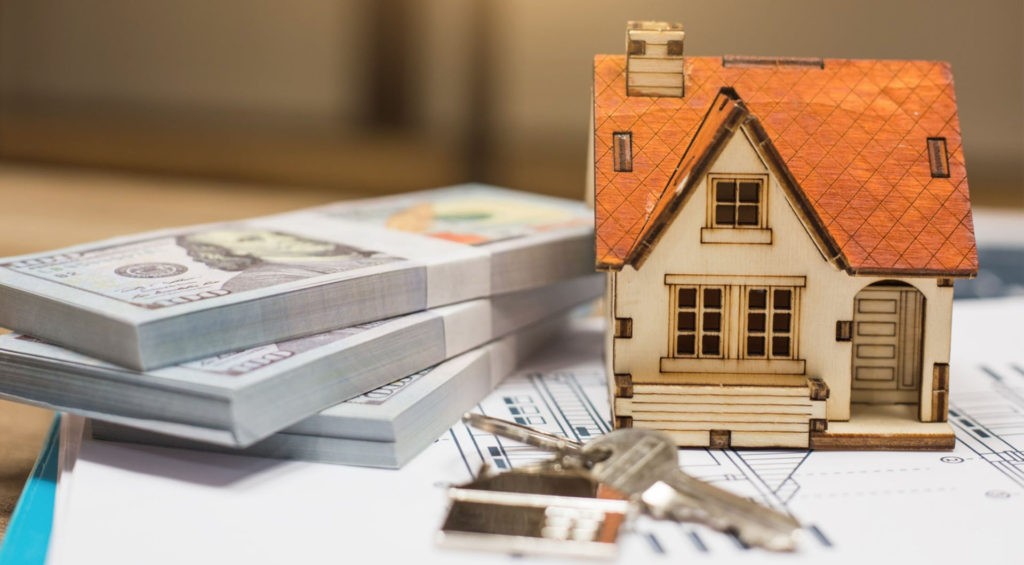6 Fact You Should Know About The Housing Market Today
Are mortgage rates going to keep going up? Are home prices going to keep climbing — or are they going to go down soon?
For anyone deciding whether to buy a home or not in today’s hectic housing market, these questions are top of mind.
Here are your answers, according to Nadia Evangelou, senior economist and director of forecasting for the National Association of Realtors, who spoke with MarketWatch about the six things people should know about today’s housing market:
1. Expect mortgage rates to rise even more
As the Federal Reserve continues its battle on record inflation rates ravaging the U.S., the average rate for a 30-year mortgage has blasted beyond 5% and, some days in June, even crossed the 6% threshold.
The average 30-year mortgage rate hovered at just over 5.6% as of Tuesday, according to Bankrate.com. Compare that to just 3% this time last year.
Evangelou said people shouldn’t expect the mortgage rate to flatline or fall. Instead, the upward trajectory will continue — just not at the same pace.
- “I don’t expect to see the same sharp increases that the market experienced in March and April. It seems that mortgage rates have already priced in some of the effects of the upcoming Fed’s rate hikes,” Evangelou told MarketWatch.
2. Consider getting an adjustable-rate mortgage
If you’re pulling the trigger on buying a home now, Evangelou said some buyers might want to consider taking out an adjustable-rate mortgage instead of a fixed-rate mortgage.
- “If they plan to sell or refinance in the next five years, a 5/1-year ARM may make more sense because the rate on these is still below 4.5%,” Evangelou told MarketWatch. “Thus, for a median-priced home, the monthly mortgage payment is about $300 lower than the payment for a 30-year mortgage.”
A 5/1-year adjustable-rate mortgage means the initial fixed-rate period lasts five years. After that, lenders can adjust the rate each year after that for the remaining life of the loan.
Such a loan might be a good option if you’re not planning on being in the home longer than five years. But be wary of adjustable-rate mortgages if you were hoping to stay in the home for the long term, as your rate could possibly increase, depending on the fluctuation of the market. On the other hand, it could also decrease, but you wouldn’t have a guaranteed rate.

3. The housing market is cooling
The Fed’s interest rate hikes, higher mortgage costs and high prices are indeed having a cooling effect on the U.S. housing market as they pinch and price out would-be home buyers.
That, in turn, is slowing the number of homes that are being sold. Evangelou noted U.S. existing home sales have dropped for the last four months. And she expects that trajectory to continue.
- “I expect a larger reduction of the home sales activity in the following months, especially after summer months,” she told MarketWatch.
4. Home prices are still rising — but at a slower pace
If you’re looking to buy a home in 2022, don’t expect housing prices to actually drop this year, Evangelou said, noting the entire country is grappling with a housing shortage. Demand continues to far outpace supply.
“Remember that when there is a housing shortage, home prices don’t fall, in fact, home prices rose about 15% in May, although mortgage rates were about two percentage points higher than a year earlier,” Evangelou told MarketWatch.
Other forecasters have similar predictions, that housing prices will continue to rise in 2022, just not at such a rapid pace. However, looking ahead to 2023, that’s where expert opinions are in a bit of conflict.
Real estate giant Zillow has the most optimistic forecast — predicting home prices to increase by 9.7% in 12 months ending in May 2023. But Capital Economics recently predicted the U.S. housing market will see home price growth decline by 5% by mid 2023 — which will then be followed by a “gradual recovery” to 3% annual price growth by the end of 2024.
5. Inventory is rising
As sales slow, that means there are more homes on the market. There were about 20,000 more homes available for sale for buyers earning $200,000 a year, MarketWatch reported.
However, there’s still a major affordable housing gap. Following a trend that’s lasted years, entry-level homes continue to be scarce.
“One of the most important reasons” for the U.S.’s housing shortfall “has been the severe underbuilding of entry-level homes, where most of the demand exists, especially now given the large cohort of millennials entering the housing market,” stated a May 2021 Freddie Mac report on the U.S.’s growing housing supply deficit.
“While it’s promising to see more homes available in the market, more entry-level homes are needed,” Evangelou told MarketWatch.
6. Competition is tough for first-time buyers
If you’re a first-time buyer, you’re likely renting. Rising home prices, combined with low inventory, are also pushing rental rates higher, likely compounding your housing woes.
So while first-time homebuyers are struggling, institutional buyers — who likely already have wealth built from their past real estate investments — are formidable competitors.
Meanwhile, rising rents are also translating to “larger profits” for institutional buyers, Evangelou said.
“However, a larger market presence of institutional buyers increases market competition for first-time home buyers. Research has shown that institutional investors may be taking a significant portion of homes that would otherwise be sold to first-time and lower-income buyers,” Evanagelou told MarketWatch.
Source: https://www.deseret.com/





